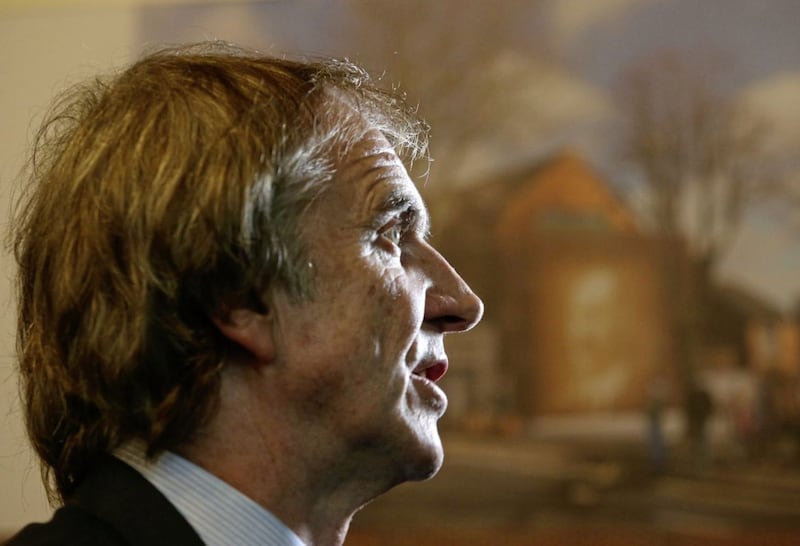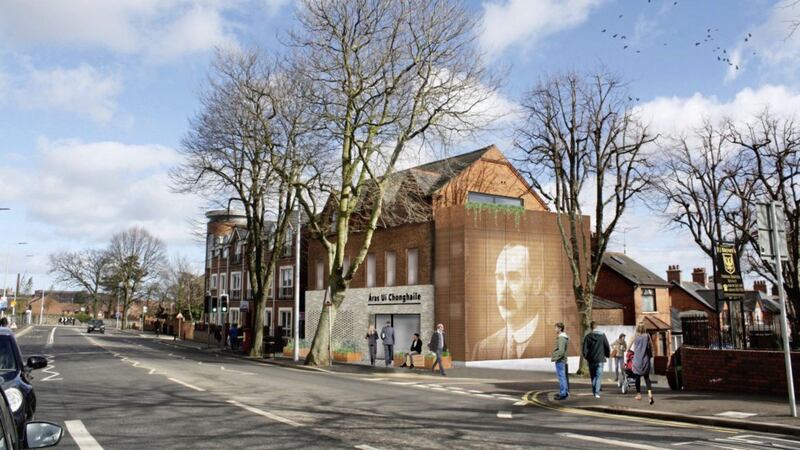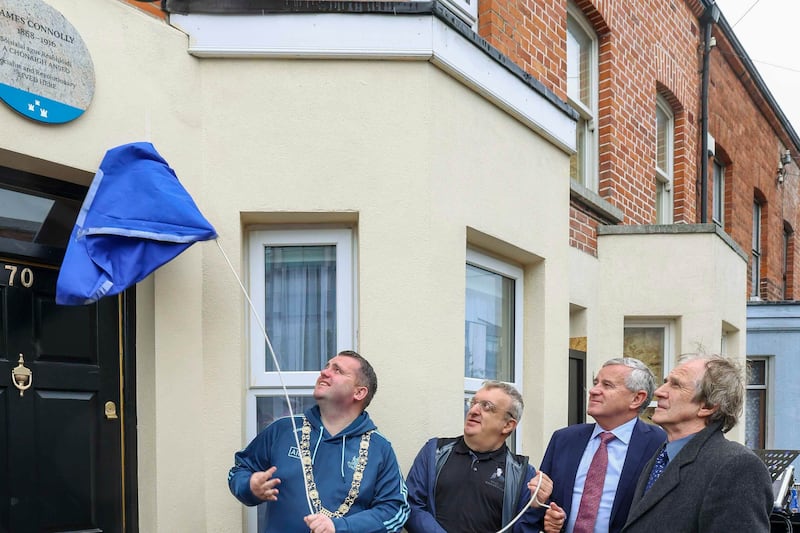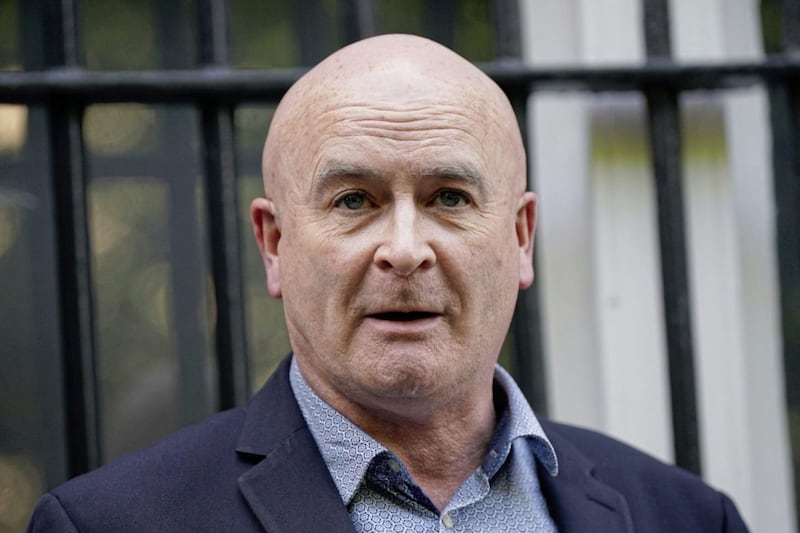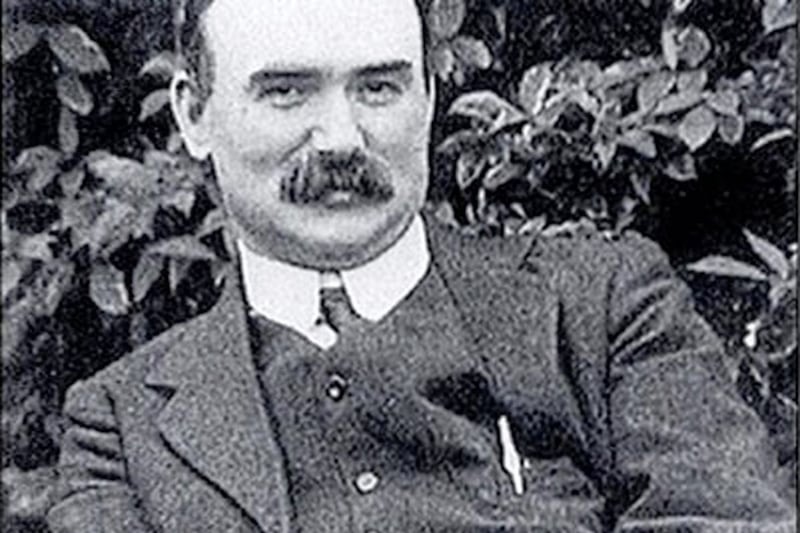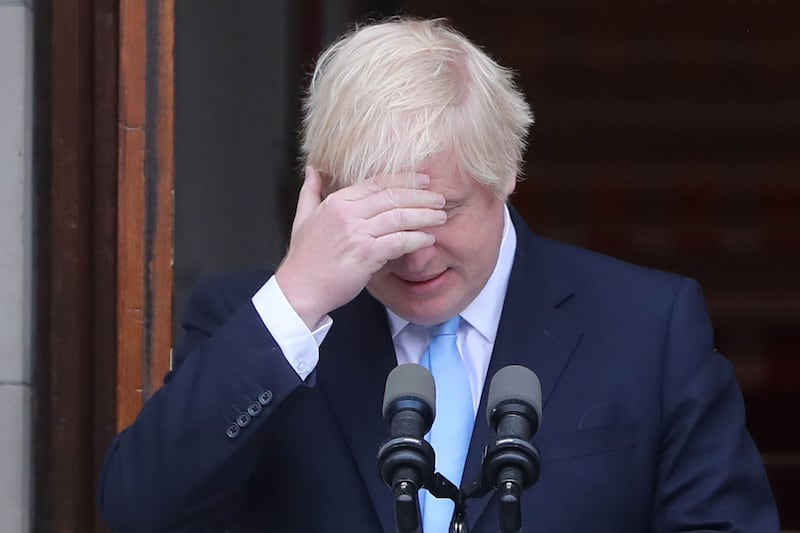WE WERE viewing a proverbial 'work in progress', but, as Harry Connolly, director of Fáilte Feirste Thiar (Welcome to West Belfast), optimistically points out, a lot can happen in a month.
The new James Connolly Interpretive Centre in west Belfast – Áras Uí Chonghaile – is due to officially launch on April 19 and on our visit a week ago, there was still much drilling, lifting and hammering going on as workmen prepared the interior for its transformative fit-out.
A former tanning salon and post office, the reimagined and extended building on the Falls Road will feature modern exhibition space, coffee shop, library, mini-theatre and multi-functional conference centre, all of which will bring alive the well known – and also partly "untold" – story of James Connolly, republican icon and trade union activist who, literally, lived "down the road".
"James Connolly is seen as a republican icon but his dedication to the working classes and his life as a trade union activist in Belfast is largely unknown," says Harry Connolly (no relation). "We are keen to tell that story and have this centre seen as a welcoming and hospitable place for people of all politics and none."
Located not far from the Culturlann Irish language cultural centre and the 2016 bronze statue of the socialist leader, it is hoped the new attraction – which has cost in the region of £1.5 million in total – will be on the 'must see' list for an estimated 20,000 tourists and visitors annually.
"The project has been funded by Belfast City Council and also the US trade union movement, as Connolly lived in America for eight years," Harry says. "Nineteen trade unions from the US all pledged financial support which amounted to over half a million dollars.
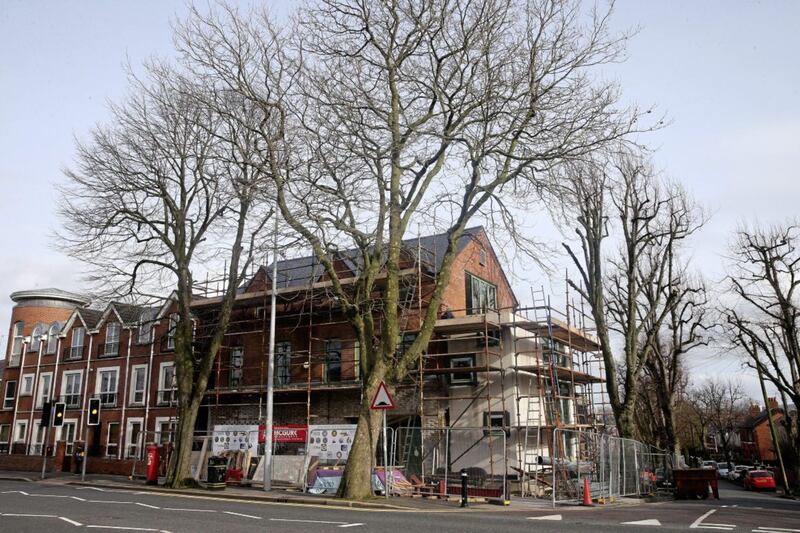
"This has been a massive, intense project, but I think Áras Uí Chonghaile will become one of the highlights in the west Belfast tourism offering and have a significant impact on the wider social, cultural and economic regeneration of the area. The fact, also, that he [Connolly] had lived close by, at Glenalina Terrace for several years, makes it all the more real for local people."
Thanks to painstaking efforts by professional researchers and academics, the new centre will be home to several rare artefacts relating to Connolly, including photographs and original publications – a 1935 hardback copy of a book written by Connolly's daughter, Nora, is among a highly prized collection.
"We also have some rare pamphlets dating back to the pre-1916 period and relating to different labour campaigns, as well as unseen photographs of his time in America," Harry says.
"What we were all struck by, when we were putting this exhibition together, was the sheer volume of work relating to Connolly: how much he wrote, how much he published and how much we found that was unpublished... his complete story, really.
"There were many poignant moments in that story which jumped out, for me personally, particularly the time when his wife left Ireland to go America and there he is, waiting for them to get off the boat and there's one child missing – a child who died in a tragic accident, a fire, in Dublin.
"Connolly is mourning that very personal loss and yet, he is still organising and still fighting for workers' rights and for those who have nothing."
The exhibition – with interactive touch-screen app 'Tranatlantic Yoyager', through which American towns and cities where Connolly organised his rallies are illuminated at the touch of a button – starts with his court martial and execution and then works back through a complex and eventful life.
"There are sections covering his time in Cowgate – Little Ireland – in Edinburgh, his seven years in the British army, his life with wife, Lily, his early years in Dublin," Harry continues. "Then we look at Connolly the pioneer, his time in the States, his coming back to organise in Belfast and Dublin, and the women in his political life.
"He was one of the founding members of the Irish Citizen's Army, the only army at the time which gave equal status to women and men. You could say he was a feminist before the word was invented."
As well as Connolly's rise to prominence through the Rising and his influencing of the text in the Proclamation, the exhibition sets out to tell what Harry describes as the "largely unknown story" of his court martial "and the legalities of that and how it would stand up to scrutiny by today's legal standards."
The Áras Uí Chonghaile joins an already impressive tourist trail in west Belfast which includes popular taxi and walking tours of historical landmarks and a growing number of cafes and restaurants which have emerged in their wake.
"The Áras Uí Chonghaile is certainly one of our most amibitous projects to date," Harry adds. "I think the local population will be mightily impressed, as well as the 'culturally curious' visitors who come to west Belfast from across the globe."
